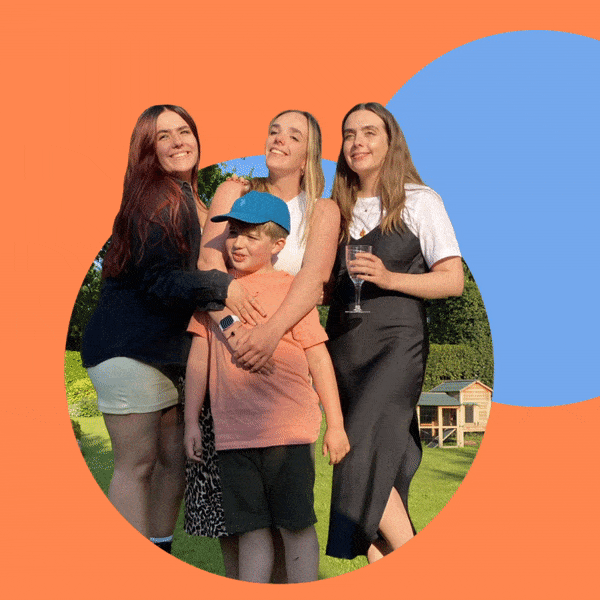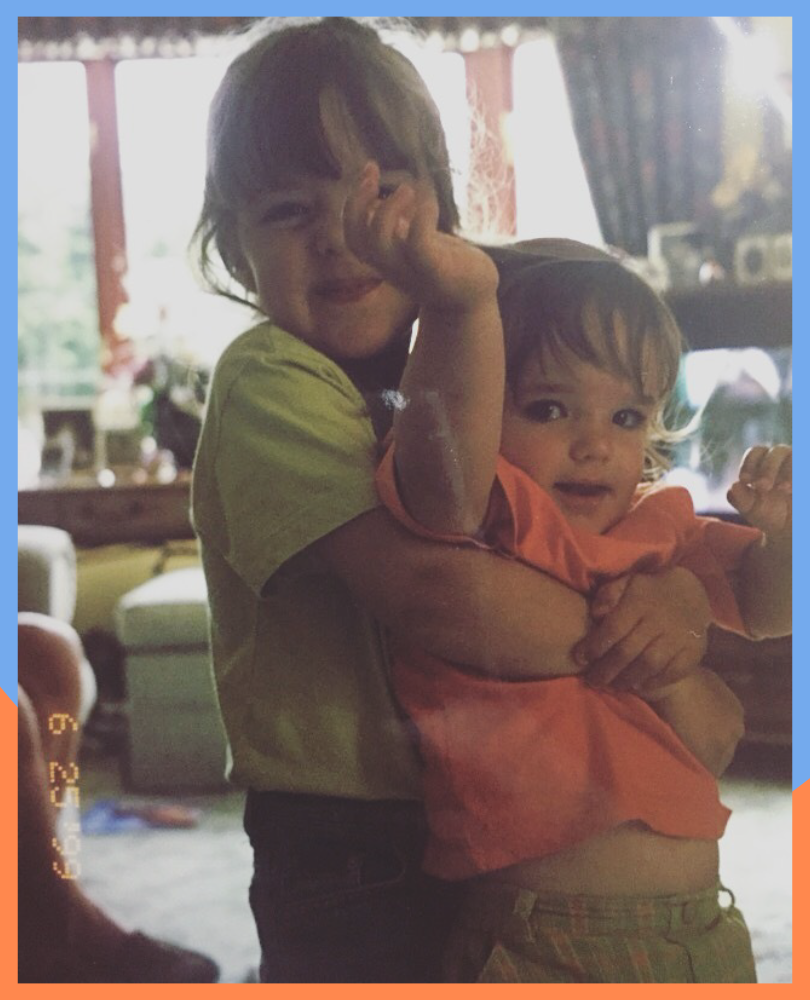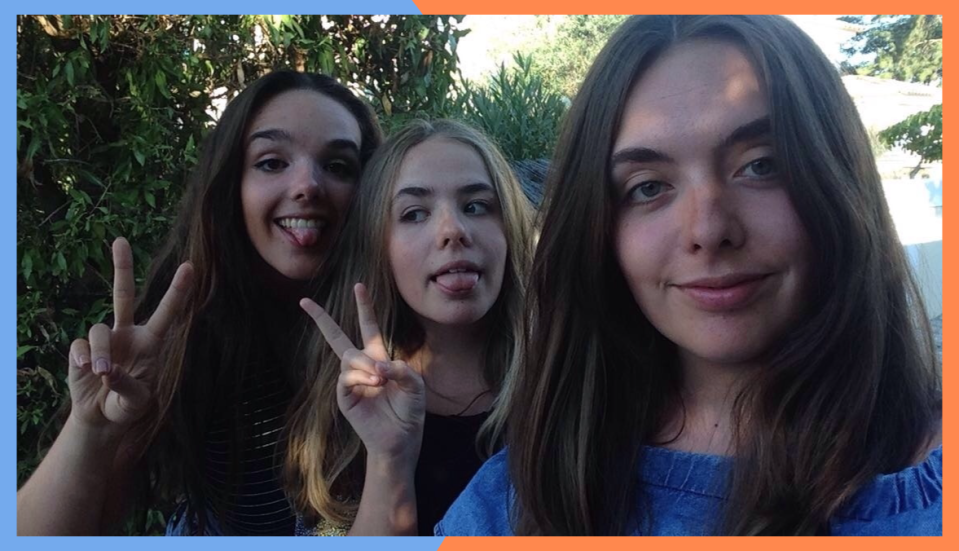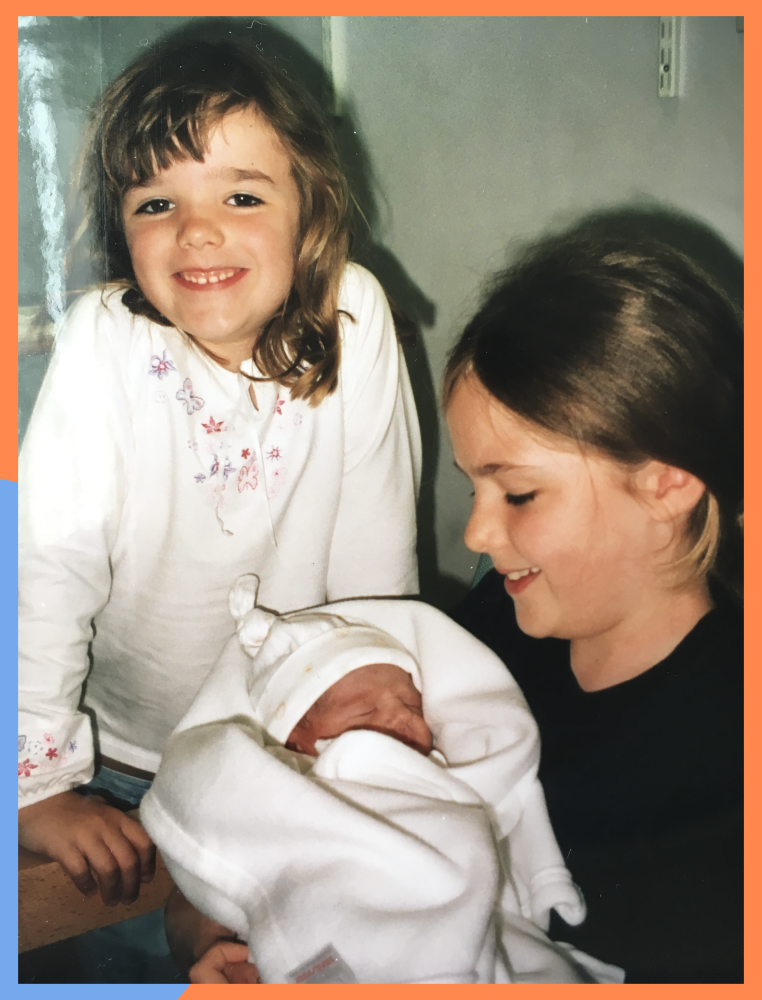My siblings are my true loves – why don’t we have a vocabulary for that?


On a February morning in the late ‘90s, I was an almost-four-year-old-girl on a mission with my grandma in our local shop. I was insisting that she add a colouring book I’d chosen to her basket, along with a bouquet of flowers she’d picked out. Despite her hesitance, I won and the book was purchased before we hurried to the hospital.
This scene – fairly mundane on paper - is one of my earliest memories, and the reason it’s etched on my brain so clearly over 20 years later is because it’s a day that changed my world forever. At the hospital, I delivered that colouring book to the new born baby my mum was holding, certain that she’d enjoy drawing in it to pass the time. It was my first act as a big sister.
Five years after my first sister, Ruth, arrived, Isabel made our duo a trio. I was nine and felt an instant desire to care for her, to hold her head just right in the crook of my arm and feed her bottles. When my brother, Max was born, I was 19 and rushed home from university to see him at the hospital in my hometown. As the child of my dad and his new partner, he was a sibling I never imagined I’d have up until the moment I met him, and then – once I had - I couldn’t see life any other way.
My relationships with each of my siblings are different but the common thread running through them is that those three people are my true loves, who I care for so deeply and instinctively I can’t quite describe it. That’s in part because some love is too big to properly capture in words, but I wonder if it’s also because we don’t quite have the vocabulary for, and understanding of, sibling love at its best?

In his book The Sibling Effect, Jeffrey Kluger points out that our spouses generally enter our lives when we’re older and our parents can’t be there for us forever, leaving our siblings as possibly “the only people we’ll ever know who truly qualify as ‘partners for life.’” It’s true, sibling bonds can be pivotal, but unlike romantic love, for which we have a wide and practiced vocabulary to discuss it, sibling love is often sidelined in the hierarchy of importance.
Of course, not everyone has siblings, or happy connections to them, but to me it feels like our culture is more versed in talking about sibling rivalry, and the kind of siblings who row and moan about each other, than those who love each other dearly. From classic literature (feuding brothers in Shakespeare’s Hamlet) to modern rom coms (like the 2005 film In Her Shoes, in which Cameron Diaz’s character sleeps with her sister’s boyfriend) examples of estranged siblings are rife. Maybe that’s why this Psychologies piece, titled “What kind of sibling relationship have you got?’ claims that ‘most sibling relationships’ fall under six headings that all sit on the cool end of the positivity barometer, from “going through the motions” to “total alienation”.
As the School of Life’s Sarah Stein Lubrano notes, ever since people started marrying for love, an increased amount of emphasis and pressure has been placed on romantic relationships above all others, causing sibling bonds to be thought about less highly.

“The downside of this shift has been that the meaning of 'love' has often become more about romantic love than anything else. We give less importance and recognition to our bonds with our family and friends. That's a shame, because these other relationships often last longer and are more selfless and caring,” explains Sarah. “Plus, even if we have good romantic relationships, we need strong friendships and/or familial bonds in our life to be a fully rounded person.”
Perhaps we’re starting to clock on to that now. Maybe it’s just me honing in on the kind of sibling relationship I want to see in pop culture, but I feel the tide is turning. From the Kardashian-Jenner clan, who regularly refer to themselves as ride or die, to the Bridgerton siblings who would quite literally die to defend each other’s honour, stories about sibling love are going centre stage. I’m so glad, because these stories leave a mark on me. I remember leaving the cinema after watching Greta Gerwig’s Little Women with the warmest of feelings about how perfectly an unbreakable bond between sisters had been captured. One of Jo March’s lines rang in my ears: “Life is too short to be angry at one’s sisters.”
This summer, I read Natasha Lunn’s Conversations on Love, a collection of thoughts and interviews about the many ways love weaves itself through our lives, and it felt revelatory to see Natasha and the author Poorna Bell talking about their sibling bonds and how key they are. “When everything falls apart in my life… there’s a feeling of being loved by my brother that I’m always sure of and that makes me stronger,” Natasha said, prompting Poorna to reply with a truly beautiful summary of her bond with her sister that reminded me a lot of how I feel about my own siblings.

“When we spend time in each other’s company, our batteries have been filled up a little, and when we’re apart, there’s this little part of us that’s missing. When I’m with Priya I’m able to be myself in a way that I’m not necessarily in other aspects of my life. It makes me feel super-connected to who I am: what I’m like as a person now, but also where I came from,” she said.
It’s conversations like these that give me faith we’ll start doing better at prioritising all different kinds of love in society, not just romance. And it’s so important that we do, because sibling love can shape our lives well beyond childhood, according to Sarah.
“The importance and even power of these relationships lies in the way that we learn to love not because we need the other person [as is the case with our relationships with our parents and guardians] but because we want to be around them and experience life with them, to help them and receive help as equals,” she says.
“Much of what we ‘work through’ with siblings in the early years, learning to handle envy and jealousy, and to accept that we are different from others without necessarily needing to be ‘better’ or ‘worse’, is the foundation for the kind of maturity that allows us to love and relate to others in adult life. If we manage this, we can appreciate our siblings all the better for having gone through this process of learning and maturity with us.”
Because of the pandemic, I’ve spent much less time with my siblings in recent months than I normally would. Our relationships shifted to being conducted through messages flying around our group chat and video call quizzes, before we were able to finally meet again. But even with this change, and huge uncertainty in the world, my sibling bonds carried on being a foundation for me, an anchor I know I’ll always be connected to. It’s often said that post-lockdown, now’s the time to reflect on life and what’s most important to us – I hope that as we do that, sibling love is seen for what it is, a main event and not something to be side lined.
You Might Also Like

 Yahoo Sport
Yahoo Sport 





































